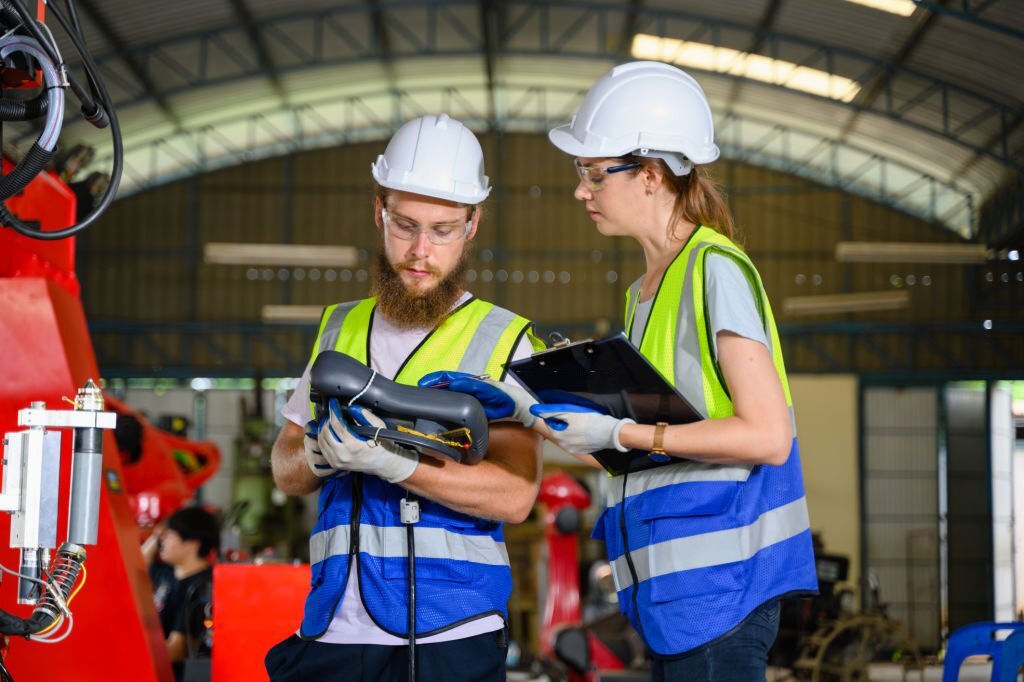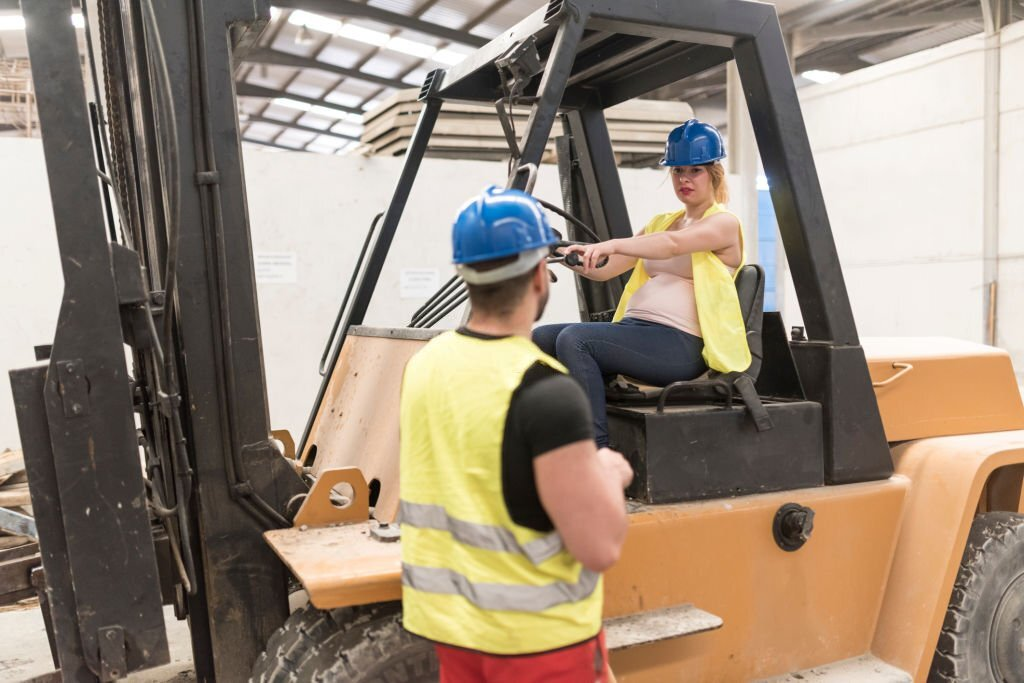
So, you’ve got a big construction project coming up, and you’re going to need some heavy machinery to get the job done. One essential piece of equipment you might be considering is an excavator. Before you jump into renting one, it’s important to understand the various factors that will impact the hourly cost of renting an excavator.
This article will guide you through the process of determining how much it will cost to rent an excavator per hour, so you can make an informed decision and keep your project on budget.
Consider the Size and Type of Excavator
It’s crucial to consider the size and type of excavator, as they’ll significantly impact the hourly rental cost. Excavator efficiency and operator experience play a significant role in determining the right machine for your project.
Generally, smaller excavators are less expensive to rent per hour than larger ones, but they may take longer to complete the job. If you’re working on a small-scale project, a mini or compact excavator might be the perfect fit and more cost-effective. On the other hand, larger excavators with higher power and capacity will be more suitable for heavy-duty tasks, but they’ll also come with a heftier price tag.
Research Rental Rates in Your Area
To determine the hourly rental rates for an excavator in your area, you’ll need to conduct some research by contacting local rental companies and comparing their prices.
Reach out to several local suppliers and ask for their hourly rates, any additional fees, and what’s included in the rental package. You’ll likely find that pricing variations exist based on factors such as the size and type of excavator, the duration of the rental, and the availability of equipment.

Evaluate the Length of Your Rental Period
Determining the optimal length of your rental period is crucial for managing expenses while ensuring you have ample time to complete your project efficiently. Rental negotiation plays a significant role in this process, as longer rental periods may come with lower hourly rates, providing you with cost savings.
To accurately estimate the length of your rental period, start by carefully assessing your project’s timeline and requirements, taking into consideration any potential delays or unexpected issues that may arise. Project estimation is key to avoiding unnecessary expenses and ensuring you don’t run out of time with the excavator.
Factor in Additional Costs
When planning your excavator rental, don’t forget to account for potential extra expenses that could impact your overall project budget. These additional costs may include fuel expenses, operator fees, transportation, and any necessary attachments or equipment.
Fuel expenses are often overlooked, but can add up quickly, especially if the excavator is being used for long hours or on large-scale projects. Operator fees may also apply if you need to hire a skilled professional to operate the excavator for you, which can vary depending on the experience level and location of the operator.

Understand Insurance Requirements
Before renting an excavator, it’s crucial to understand the insurance requirements involved in the process.
You’ll need to consider liability coverage, damage waivers, and additional protection options to ensure you’re fully covered in case of any accidents or damages.
By thoroughly examining these aspects, you’ll be better prepared to make an informed decision and protect your investment during the rental period.
Liability coverage
Don’t forget to factor in liability coverage costs while renting an excavator per hour, as it’s essential for protecting you against potential damages or accidents. Liability coverage ensures that you’re protected from financial loss due to unforeseen incidents during the rental period. However, it’s crucial to be aware of liability limitations and coverage exclusions that may apply to your rental agreement.
For instance, some rental companies may limit the amount of liability coverage they provide, while others may exclude specific types of damages or accidents from their coverage. Be sure to clarify these details with the rental company beforehand to avoid any surprises later on.
Damage waivers and additional protection options
Now that you’ve got an understanding of liability coverage, it’s essential to consider additional protection options for your excavator rental. Damage waivers and other protection plans can save you from unexpected expenses and headaches, especially when dealing with heavy machinery like excavators.
Excavator Rental Cost per Hour: Factors, Prices, and Options
When embarking on a construction or excavation project, the choice of equipment is a critical decision that can significantly impact both your budget and project timeline. Renting an excavator is a common practice in the construction industry, allowing you to access heavy machinery without the long-term commitment of ownership. In this article, we’ll explore excavator rental costs per hour, factors that influence these costs, and what you need to know when considering excavator rentals.
Understanding Excavator Rentals
1. Mini Excavator vs. Standard Excavator:
Excavators come in various sizes, with mini excavators being a popular choice for smaller projects or jobs with limited space. The rental cost per hour can vary depending on the size and type of excavator you choose.
2. Rental Companies:
Rental companies play a crucial role in determining excavator rental costs. Rates may vary from one company to another, so it’s advisable to obtain quotes from multiple rental providers to ensure you get the best deal.
Factors Influencing Excavator Rental Costs
1. Rental Duration:
The duration of your rental significantly affects the cost per hour. Rental rates are typically lower for longer rental periods, making it cost-effective to plan your project efficiently.
2. Excavator Weight:
The weight and size of the excavator impact rental costs. Heavier excavators generally have higher hourly rates due to their increased capabilities and capacities.
3. Rental Location:
Geographic location can also influence rental prices. Excavator rental costs may differ from one region to another, depending on local demand and availability.
4. Additional Costs:
Additional costs such as delivery fees, fuel charges, and operator fees may apply, so be sure to clarify these with the rental company.
Average Excavator Rental Prices
1. Rental Prices Range:
On average, excavator rental costs per hour can range from $100 to $300 or more. This range is influenced by the factors mentioned earlier, including size, duration, location, and additional fees.
2. Mini Excavator Rates:
Mini excavators, which are commonly rented for smaller projects, tend to have lower hourly rental rates compared to their larger counterparts. Hourly rates for mini excavators may start as low as $50 to $100.
Choosing the Right Excavator Rental
1. Evaluate Your Project:
Assess the specific requirements of your project to determine the size and type of excavator you need. Consider factors such as the depth of excavation, space constraints, and the volume of material to be moved.
2. Get Multiple Quotes:
Reach out to several rental companies to obtain quotes based on your project’s needs. Compare rates, rental terms, and any additional fees to make an informed decision.
3. Plan Efficiently:
To optimize your rental costs, plan your project efficiently, and make the most of your rented excavator during the agreed-upon hourly rental duration.
Excavator Rental Costs and Considerations: From Weights to Rates
Excavators are essential pieces of heavy machinery on construction job sites, offering unparalleled digging and lifting capabilities. When renting an excavator, it’s crucial to understand the factors that influence rental costs, from the machine’s weight to hourly rates and the expertise of rental companies. In this article, we’ll explore excavator rental costs, considerations, and tips to help you make informed decisions for your construction projects.
The Weight of Excavators and Average Costs
1. Excavator Weight vs. Rental Costs:
The weight of an excavator can significantly impact rental costs. Heavier excavators, often categorized as large excavators, tend to have higher hourly rental rates due to their robust capabilities. Compact excavators, on the other hand, are lighter and generally more affordable to rent.
2. Compact Excavators:
Compact excavators, also known as mini excavators, are versatile machines suitable for a wide range of projects. They are favored for their lower rental costs, making them an excellent choice for smaller construction jobs.
Hourly Rental Rates and Pricing Considerations
1. Hourly Rental Rate:
Excavator rental rates are typically charged on an hourly basis. The hourly rate can vary widely, ranging from $50 to $300 or more, depending on factors such as the excavator’s size, location, and rental company.
2. Location Matters:
Geographic location plays a role in rental rates. High-demand regions may have higher rental costs, so it’s essential to compare rates from rental companies in your area.
3. Additional Costs:
In addition to the hourly rate, be aware of potential additional costs such as delivery fees, fuel charges, and operator fees, which can impact the total rental cost.
Renting from Reputable Companies
1. Choose Reliable Rental Companies:
Selecting a reputable rental company is crucial for a smooth rental experience. Look for companies with a track record of providing well-maintained equipment and excellent customer service.
2. Ask for References:
Before renting, ask the rental company for references or customer reviews to gain insights into their reliability and service quality.
Tailoring the Excavator to Your Project
1. Assess Your Project Needs:
Evaluate your construction project’s requirements, including the depth of excavation, space limitations, and material handling needs. This assessment will help you determine the right excavator size and type.
2. Consider Compact Track Loaders:>
Compact track loaders are versatile machines that can be used with various attachments. They offer efficiency and flexibility, particularly on commercial construction jobs.
Conclusion
In conclusion, it’s essential to consider the size and type of excavator needed for your project and research rental rates in your area. Don’t forget to factor in additional costs and insurance requirements.
Remember, the length of your rental period can also impact the overall cost. By being well-informed and prepared, you’ll be able to make the best decision for your project and budget.

